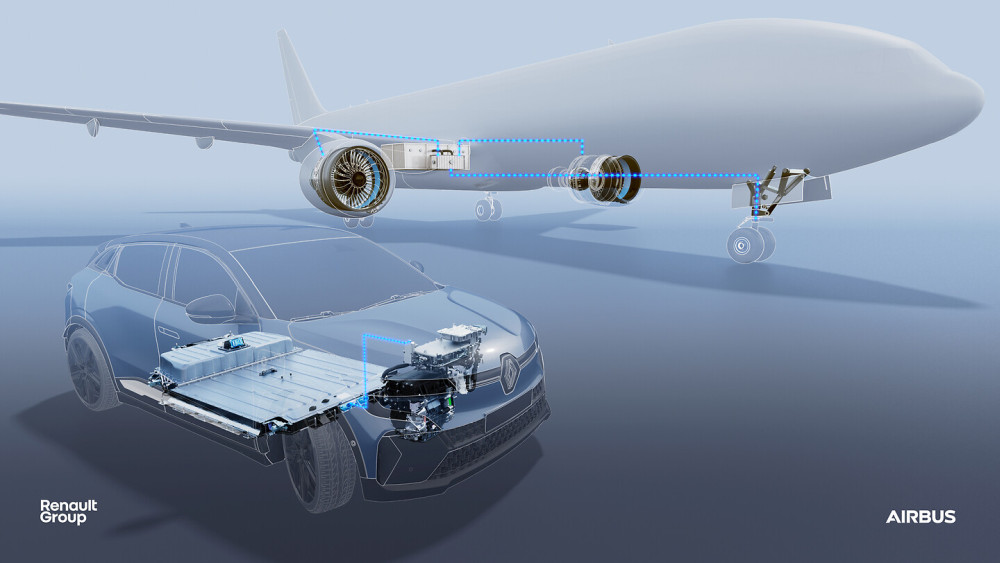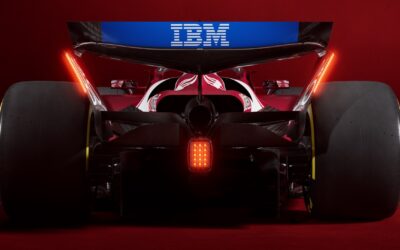Toulouse / Boulogne-Billancourt, 30 November 2022 – Airbus and Renault Group, both leaders in the aerospace and automotive industries, have signed a research and development agreement which aims at enhancing transversalities and synergies to accelerate both companies’ electrification roadmaps, improving their respective range of products. This partnership will help Airbus mature technologies associated with future hybrid-electric aircraft and will be detailed at the Airbus Summit taking place 30 November – 1 December.
As part of this partnership, Airbus’ and Renault Group’s engineering teams will join forces to mature technologies related to energy storage, which remains one of the main roadblocks for the development of long-range electric vehicles. The cooperation agreement will notably cover technology bricks related to energy management optimisation and battery weight improvement, and will look for the best pathways to move from current cell chemistries (advanced lithium-ion) to all solid-state designs which could double the energy density of batteries in the 2030 timeframe.
The joint work will also study the full lifecycle of future batteries, from production to recyclability, in order to prepare the industrialisation of these future battery designs while assessing their carbon footprint across their entire lifecycle.
“For the first time, two European leaders from different industries are sharing engineering knowledge to shape the future of hybrid-electric aircraft. Aviation is an extremely demanding field in terms of both safety and energy consumption, and so is the car industry. At Renault Group, our 10 years of experience in the electric vehicle value chain gives us some of the strongest feedback from the field and expertise in the performance of battery management systems. Driven by the same ambition to innovate and reduce the carbon footprint, our engineering teams are exchanging with those of Airbus to converge transversal technologies that will enable both hybrid aircraft to be operated and the vehicles of tomorrow to be developed,” said Gilles Le Borgne, EVP, Engineering, Renault Group.
“This cross-industry partnership with Renault Group will help us mature the next generation of batteries as part of Airbus’ electrification roadmap,” said Sabine Klauke, Airbus Chief Technical Officer. “Reaching net zero carbon emissions by 2050 is a unique challenge that requires cooperation across sectors, starting today. Bringing together Renault Group’s experience in electric vehicles with our own track record in electric flight demonstrators will allow us to accelerate the development of the disruptive technologies required for future hybrid aircraft architectures in the 2030s and beyond. It will also foster the emergence of common technical and regulatory standards in support of the clean mobility solutions needed to achieve our climate targets.”
Technological trends are moving in the same direction. Airbus and Renault Group’s cooperation on electrification will play an important role in bringing change to the transport landscape, successfully contributing to the ambition of net-zero emissions by 2050, of both the automotive and the aviation sector.
See also: Airbus and Neste Partner on SAF Development To Decarbonise Aerospace
The Airbus Summit will be live streamed from 09:00 CET Paris time on 30 November. To find out more about the Airbus and Renault Group partnership, join the “Let’s get hybrid” round table from 13:45 to 15:00 (includes a Q&A session), link is available here.









